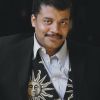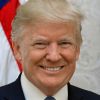7 Best-Selling Political Philosophy Books Millions Love
Discover top Political Philosophy books recommended by Neil Degrasse Tyson, Fred Wilson, and Samantha Power—leaders whose picks reveal enduring best-selling works.




There's something special about books that both critics and crowds love, and political philosophy stands as a field where enduring ideas shape the way societies govern and evolve. Political philosophy books that have stood the test of time and garnered millions of readers offer frameworks that continue to influence modern thought and governance. Understanding these works allows you to engage meaningfully with critiques and foundations of power, justice, and social order—topics as urgent now as in the past.
Experts like Neil Degrasse Tyson, who appreciates Machiavelli's pragmatic leadership insights, and Fred Wilson, a venture capitalist valuing strategic political thought, highlight how these texts resonate beyond academia. Meanwhile, Samantha Power, with her experience as a Harvard professor and former UN Ambassador, emphasizes the contemporary relevance of anarchist perspectives, showing how these books continue to inspire and challenge political norms.
While these popular books provide proven frameworks, readers seeking content tailored to their specific Political Philosophy needs might consider creating a personalized Political Philosophy book that combines these validated approaches and fits unique learning goals and interests.
Recommended by Neil Degrasse Tyson
Astrophysicist
by Niccolò Machiavelli··You?
by Niccolò Machiavelli··You?
Niccolò Machiavelli's decades of diplomatic experience during the turbulent Renaissance shaped The Prince into a manual on power that shakes traditional morality. You learn how rulers can navigate political survival by sometimes employing ruthless tactics, as Machiavelli argues that the ends can justify the means. The book dives into realpolitik principles, exploring leadership, statecraft, and the use of force or cunning, with chapters illustrating how fortune and prowess affect a prince’s hold on power. If you want to understand pragmatic governance beyond idealism, this concise guide offers thought-provoking insights, though it may challenge your ethical views.
by Karl Marx / Friedrich Engels·You?
by Karl Marx / Friedrich Engels·You?
What if everything you knew about capitalism and class struggle was viewed through a different lens? Karl Marx and Friedrich Engels challenge the conventional wisdom of their era by dissecting the capitalist mode of production and predicting its transformation into socialism. You’ll encounter a nuanced analysis of societal structures, especially the dynamics between classes, that still echoes in today's political debates. The book specifically examines how liberal ideas have absorbed many original communist principles, like equality beyond heredity, reshaping modern political discourse. If you’re interested in understanding the ideological roots behind ongoing economic and social tensions, this manifesto offers direct insight from its 19th-century origins.
by TailoredRead AI·
This tailored book explores the essential concepts and core principles of political philosophy in a way that matches your background and learning goals. It covers foundational ideas about justice, governance, power, and social order, while also examining influential theories and thinkers that have shaped political thought. By focusing on your specific interests, this personalized guide reveals how these ideas connect and apply to contemporary issues, providing a clear and engaging path through complex material. The book’s tailored approach ensures you engage deeply with the political philosophy concepts that matter most to you, enriching your understanding and critical thinking with content aligned to your unique perspective.
by Plato, Desmond Lee, Melissa Lane··You?
by Plato, Desmond Lee, Melissa Lane··You?
Plato’s decades of philosophical inquiry led to this foundational work exploring justice, governance, and the ideal society through a lively dialogue. You’ll engage with Socrates and others as they debate what makes a just community and the roles individuals play within it, including the intriguing concept of philosopher kings. The book also dives into education’s purpose and examines the nature of reality and knowledge itself, offering you perspectives that challenge modern assumptions. If you’re curious about the roots of Western political thought and want to understand enduring questions about society and morality, this is a text that rewards thoughtful reflection but isn’t for those seeking quick answers.
The breakthrough moment came when Plato articulated his vision of justice and the ideal state, shaping centuries of political thought. This edition enriches the original work with a concise introduction, timeline, and detailed notes that illuminate Plato's arguments about governance, morality, and societal roles. You’ll explore key themes like the philosopher-king, the tripartite soul, and the concept of justice as harmony, gaining tools to critically assess political systems. It’s a solid choice if you’re interested in foundational political philosophy or seeking to understand the roots of Western political theory.
by Karl Marx, Ben Fowkes, Ernest Mandel··You?
by Karl Marx, Ben Fowkes, Ernest Mandel··You?
Karl Marx was a philosopher and economist whose deep immersion in the social and economic upheavals of 19th-century Europe shaped this influential work. In "Capital," you explore a detailed analysis of capitalism’s mechanisms, including how capital accumulation drives social inequality and exploitation. The book delves into concepts like surplus value, commodity fetishism, and the cyclical nature of economic crises, offering tools to critically assess economic structures. If you’re interested in understanding the roots of economic class struggles or the theoretical foundations of socialism and communism, this text provides a dense but rewarding study.
by TailoredRead AI·
This tailored book explores governance and political leadership through a focused 30-day journey designed to match your background and interests. It carefully examines key concepts like leadership styles, power dynamics, and institutional structures, offering a clear path to understanding complex political systems. By centering on personalized insights, it reveals how governance principles apply to real-world contexts, aligning with your specific learning goals. This personalized approach ensures that you engage deeply with governance topics that matter most to you, making the learning process both efficient and meaningful.
by Francis Fukuyama··You?
by Francis Fukuyama··You?
When Francis Fukuyama traced the origins of political institutions, he uncovered an evolutionary journey from tribal societies to centralized states accountable to citizens. You learn how political order developed through various cultures, from early primates to China’s first modern state, and the emergence of law and accountability in India, the Middle East, and Europe before the French Revolution. His interdisciplinary approach—blending history, biology, and economics—offers insight into why some societies succeed politically while others struggle. This book is ideal if you're interested in understanding the deep roots of governance and what shapes modern political systems.
Recommended by Samantha Power
Harvard professor and former US Ambassador
“Chomsky is a global phenomenon.”
by Noam Chomsky, Nathan Schneider··You?
by Noam Chomsky, Nathan Schneider··You?
Noam Chomsky's decades as a linguist and political activist culminate in this collection of essays that explore anarchism not as chaos but as a reasoned political stance challenging entrenched power structures. You’ll encounter how Chomsky redefines anarchism through an optimistic, collective lens, especially in essays detailing the historical roots and contemporary relevance of the ideology. Nathan Schneider’s introduction bridges Chomsky’s ideas with recent movements like Occupy, grounding theory in today’s activism. If you're grappling with questions about power and justice, this book offers a clear-eyed perspective rooted in egalitarian thought rather than abstract theory.
Proven Political Philosophy, Personalized ✨
Get expert-backed strategies tailored to your unique political philosophy interests and goals.
Endorsed by top experts and thousands of readers worldwide
Conclusion
The seven books highlighted here collectively offer a rich tapestry of political philosophy—from Machiavelli's candid realpolitik to Marx’s economic critiques and Chomsky's radical anarchism. They provide proven frameworks that have guided readers in understanding power structures, justice, and social evolution.
If you prefer proven methods grounded in history and theory, start with Machiavelli's The Prince and Plato's Republic. For validated approaches blending economics and political critique, combine Marx's Capital with The Communist Manifesto. Those curious about the evolution of political institutions should delve into Fukuyama's The Origins of Political Order.
Alternatively, you can create a personalized Political Philosophy book to combine proven methods with your unique needs. These widely-adopted approaches have helped many readers succeed in grasping complex political ideas and applying them thoughtfully in today's world.
Frequently Asked Questions
I'm overwhelmed by choice – which book should I start with?
Start with Plato's Republic if you're new; it lays the foundation of Western political philosophy. For a pragmatic view on power, The Prince by Machiavelli offers clear insights. Both give you a strong base to build upon.
Are these books too advanced for someone new to Political Philosophy?
Not at all. While some texts are dense, books like The Communist Manifesto and On Anarchism present ideas clearly and accessibly, making them suitable for readers new to political philosophy.
Do I really need to read all of these, or can I just pick one?
You can pick one based on your interests. For example, choose Capital for economic focus or On Anarchism for radical theory. Each book offers unique insights, so select what resonates most with your goals.
Which books focus more on theory vs. practical application?
Plato's Republic and Fukuyama's The Origins of Political Order explore theoretical foundations. The Prince emphasizes practical leadership tactics, while The Communist Manifesto blends theory with calls for social change.
Are there any books here that contradict each other?
Yes, ideas differ—for example, Machiavelli's pragmatic statecraft contrasts with Chomsky's anarchist views. These contrasts reflect political philosophy's rich debates, offering you multiple perspectives to explore.
Can I get tailored insights without reading all these books?
Yes! While these expert-endorsed books provide valuable foundations, you can create a personalized Political Philosophy book that blends proven ideas with your specific interests and pace for efficient learning.
📚 Love this book list?
Help fellow book lovers discover great books, share this curated list with others!
Related Articles You May Like
Explore more curated book recommendations






